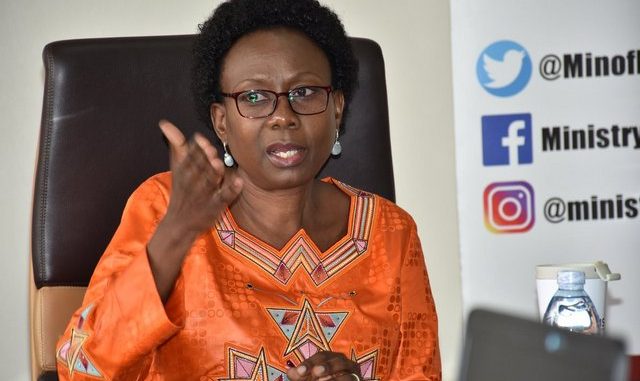Health Minister Dr. Jane Ruth Aceng
The Ministry of Health (MOH) has revealed that the new draft bill to introduce the National Health Insurance Scheme will be re-tabled before cabinet in the next two weeks revealing that it will be mandatory for all adult Ugandans to pay.
Speaking during the Opening of the Annual Joint Health Sector Review Conference on Wednesday, Health Minister Dr. Jane Ruth Aceng said having a national health Insurance scheme in place is one of the six commitments that Uganda recently made during the United Nations Health Assembly and that they have done thorough consultations to pay the way for its introduction.
This development comes after several failed attempts by the Health Ministry to establish the National Health Insurance Scheme in 2004. The latest attempt was last year when parliament passed the bill only to be withdrawn shortly after.
Aceng says while they had previously proposed that employers make part contributions to the scheme for their employees, this stance has since changed with complaints of over-burdening the employer.
It should be noted however, that currently, even before the public insurance scheme comes into place, employers have been one of the biggest buyers of private health insurance with corporate companies securing insurance for their staff.
Aceng says they have since established that employers don’t want to pay in the bigger national scheme and they therefore resolved to segment contributions according to generated income groups with some contributing annually and others monthly.
Aceng had earlier intimated to URN that each family head is expected to contribute fifteen thousand shillings for each member of his household to the scheme. She also said that anyone aged eighteen and above will also have to pay irrespective of whether they are in employment or not.
Meanwhile, experts have also spoken out on the idea of having people pay or not, and for Dr Githinji Gitahi, the Chief Executive Officer, of AMREF Health Africa one of the entities that have been spearheading discussions on attaining universal health coverage, the government needs to do mapping to determine which people can afford to contribute irrespective of whether they work in the informal or formal sector.
He suggests the use of village health teams (VHTs) to determine those who can afford the annual contribution and this he says has to be a continuous process because poverty levels keep changing.
-URN





